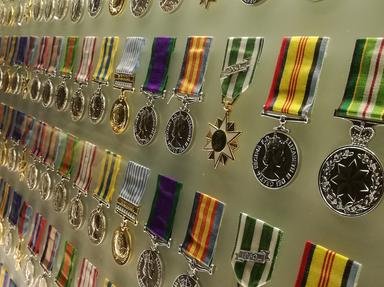Quiz Answer Key and Fun Facts
1. Military messages tend to be short and to the point. In 47 BCE, which general reported a victory with the famous "I came, I saw, I conquered"?
2. WW2 U.S. General Antony McAuliffe made a famous response to a German request for his surrender: "Nuts!". In what location were McAuliffe's forces surrounded by the Germans?
3. In 1879, which grizzled commander, known for practicing "total war" on a long march in the U.S. Civil War, told a class of West Point cadets: "War is hell!"?
4. Chaplain Howard Forney was aboard USS New Orleans during the Japanese attack on Pearl Harbor. Prevented from directly fighting due to his non-combatant status, what phrase is he credited with to encourage the naval gun crews?
5. Which poem by a British author contains the phrase "Theirs not to reason why /
Theirs but to do and die"?
6. Which embattled U.S. commander during the Vietnam War was quoted as saying "The military don't start wars. Politicians start wars."?
7. On which occasion did Emperor Hirohito address the Japanese people saying the war was motivated by "Our sincere desire to ensure Japan's self-preservation and the stabilization of East Asia ..."?
8. Which Prussian general and military theorist wrote "War is merely the continuation of [foreign] policy by other means"?
9. Which military leader, born in what is now Hungary and known as the "Scourge of God", is quoted as saying "There, where I have passed, the grass will never grow again."?
10. Which American war leader and politician said "My first wish is to see this plague of mankind, war, banished from the earth."?
Source: Author
wjames
This quiz was reviewed by FunTrivia editor
bloomsby before going online.
Any errors found in FunTrivia content are routinely corrected through our feedback system.

